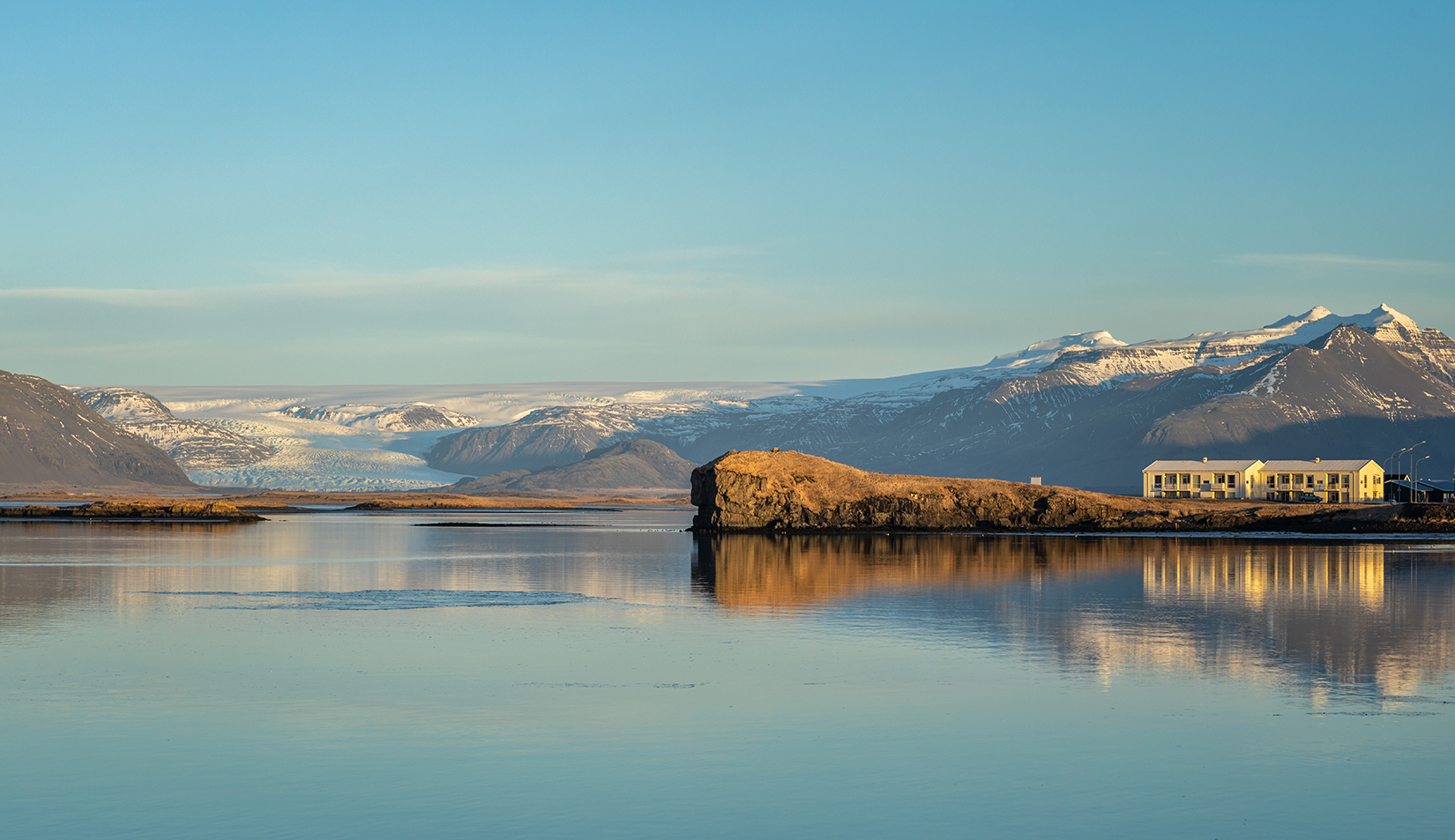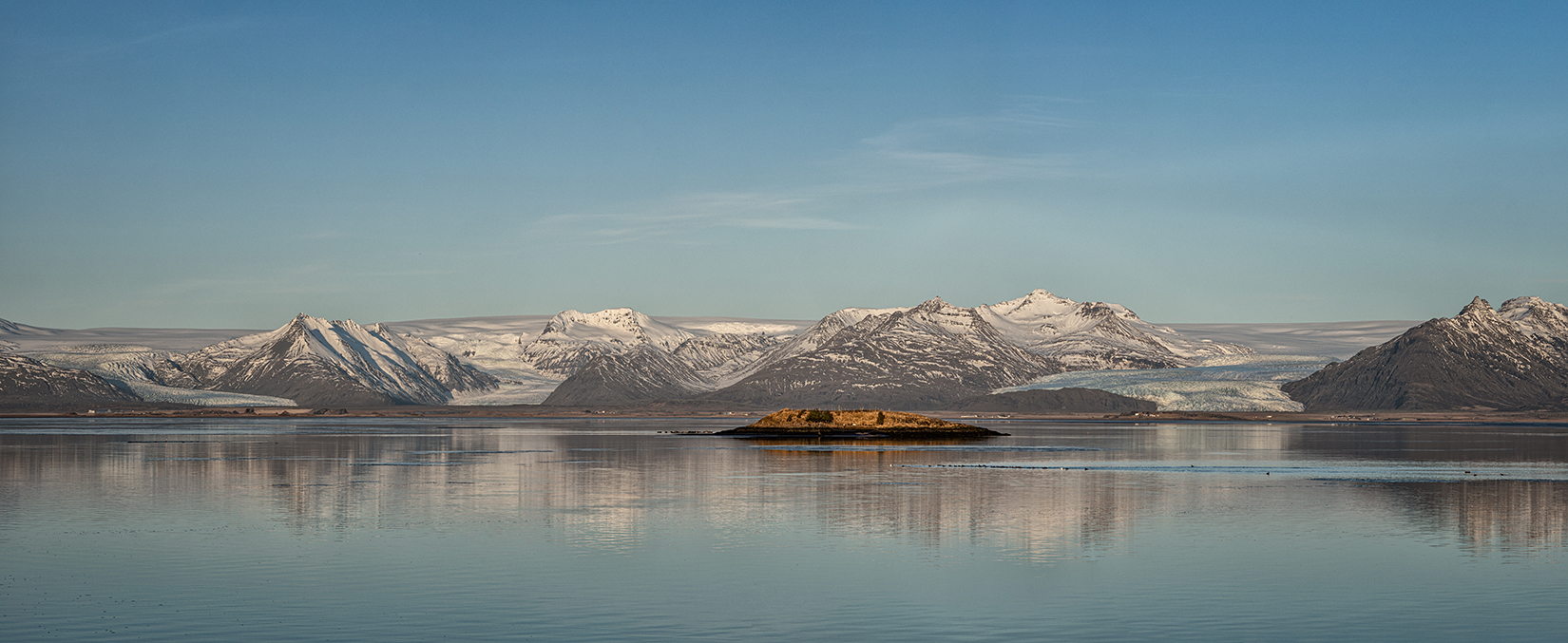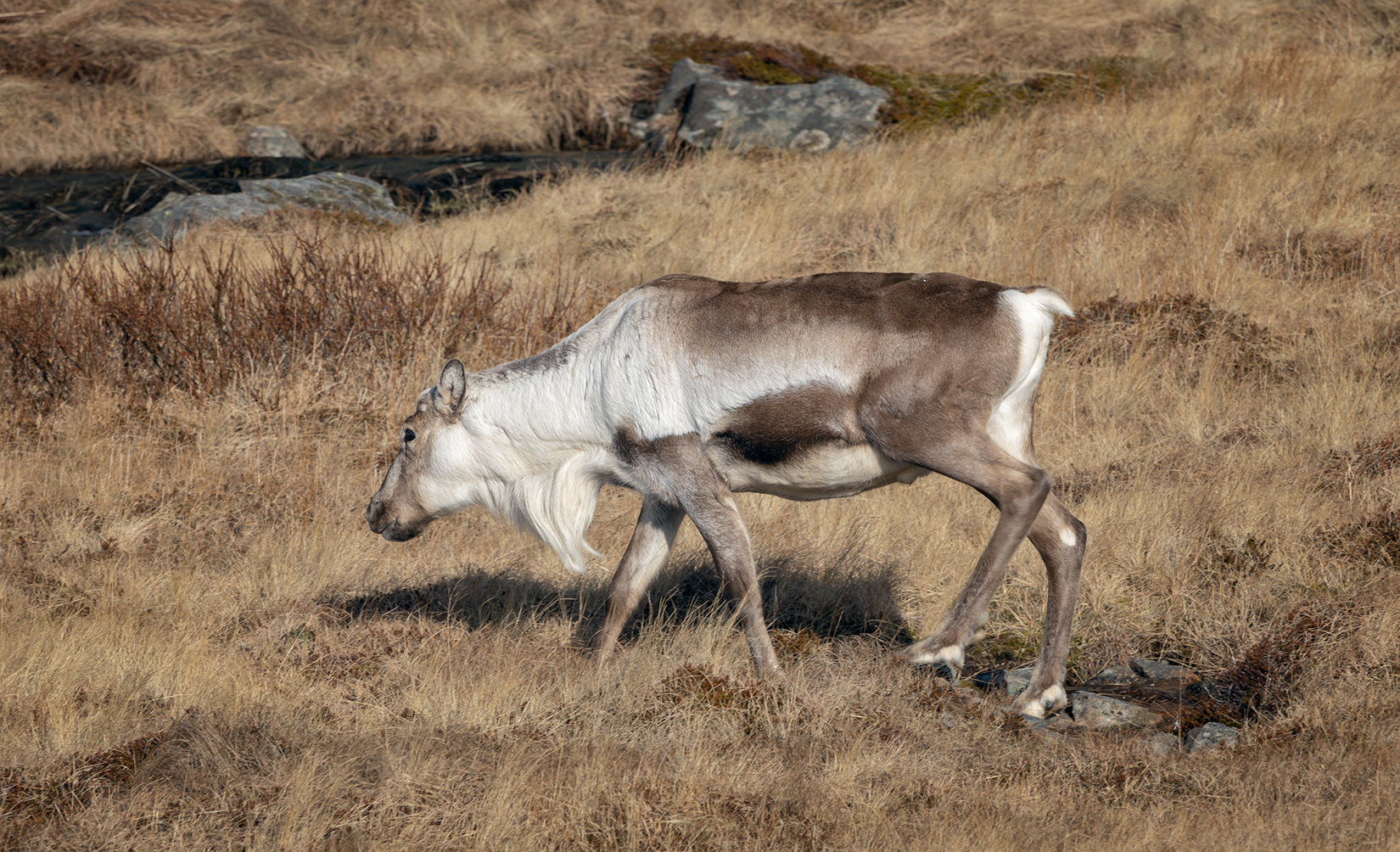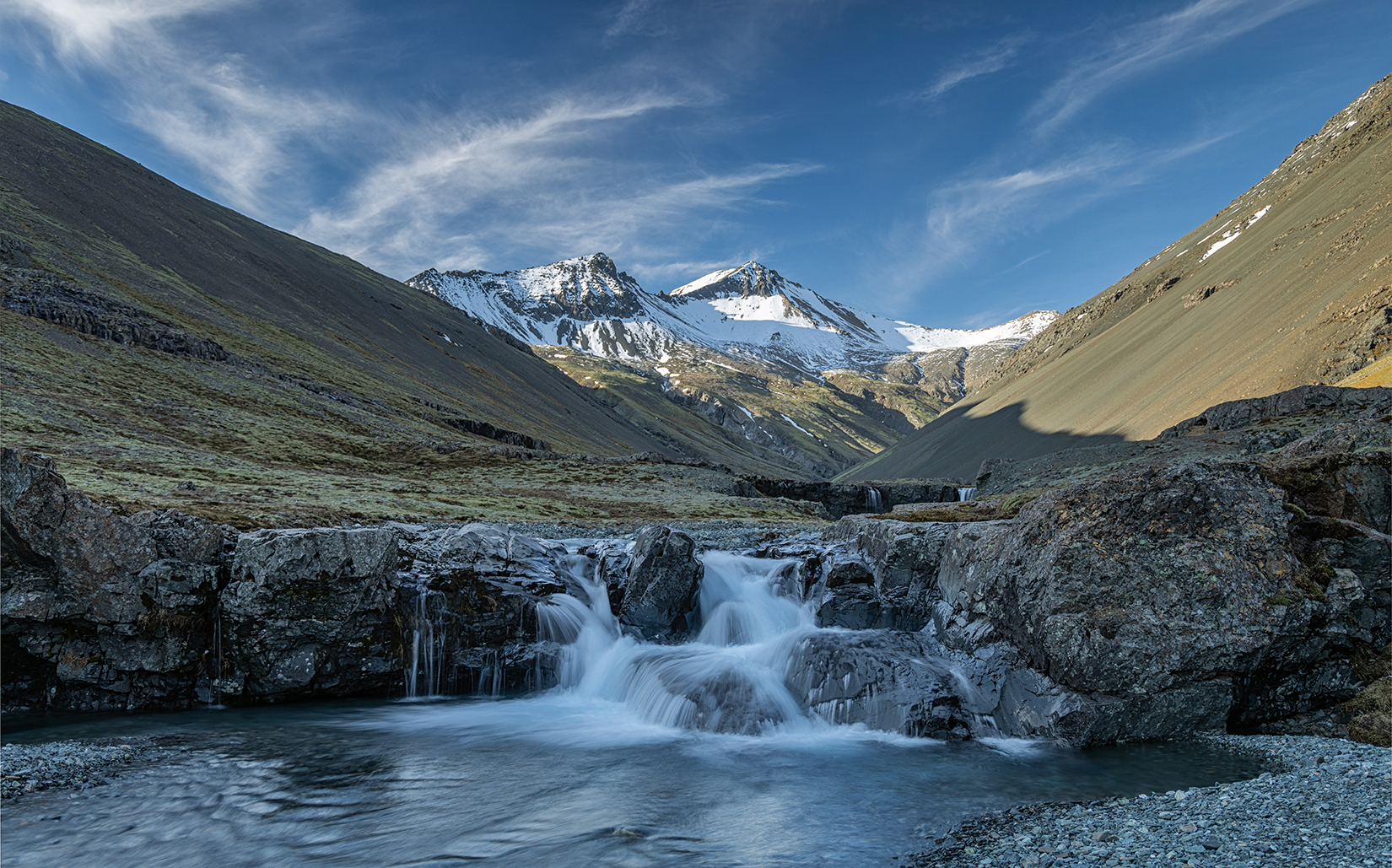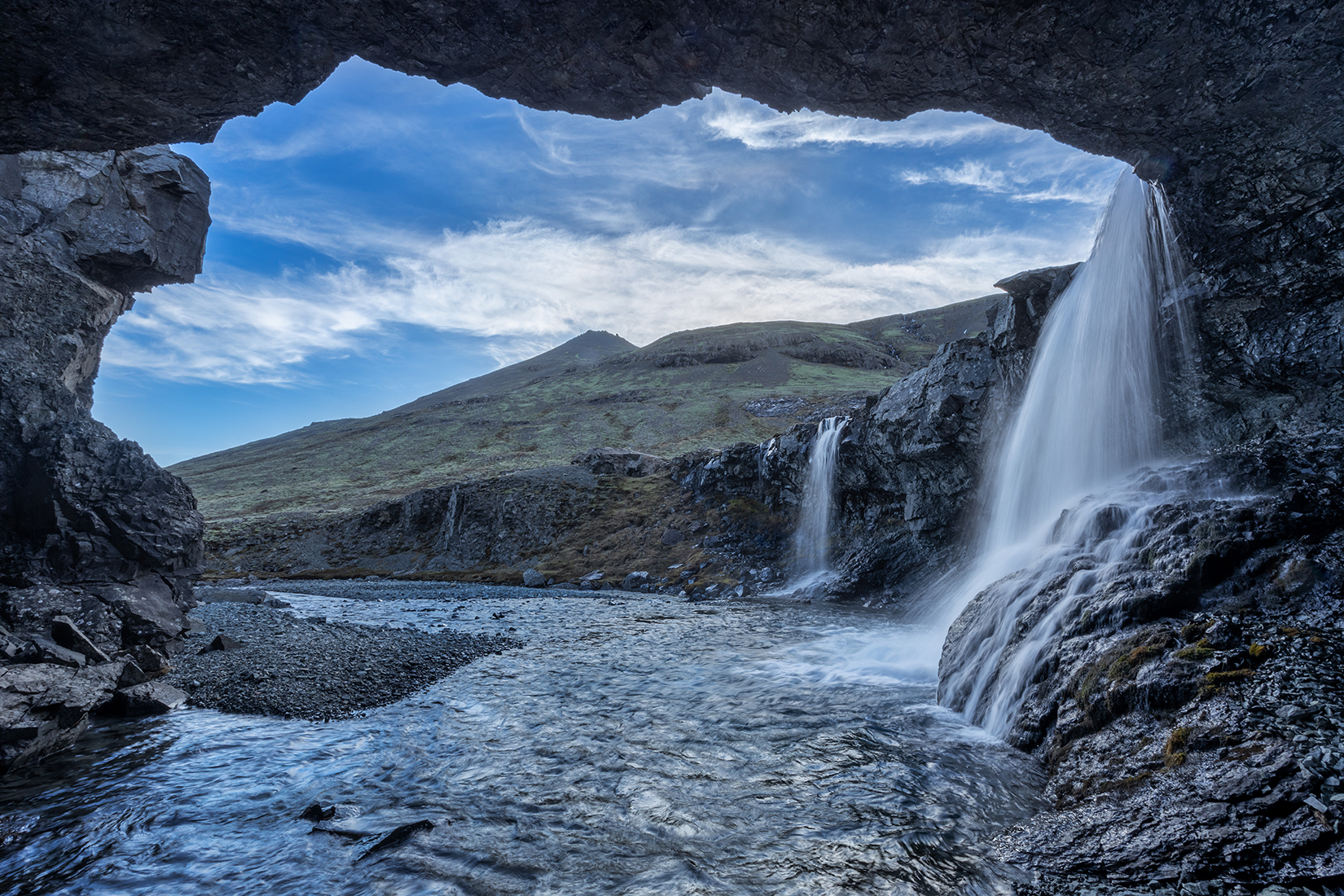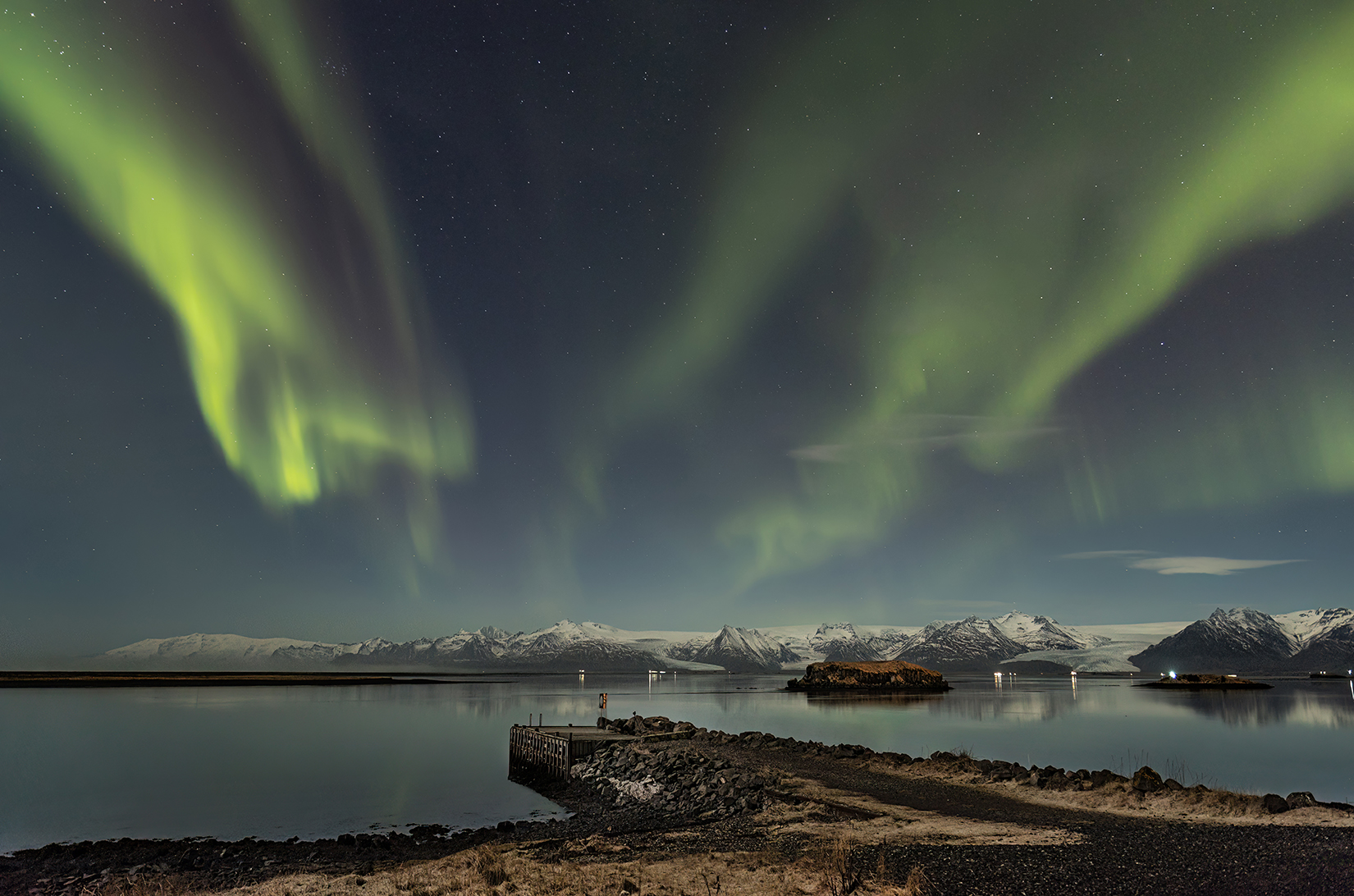Date: 2nd Mar 2023
Hofn Sunrise
Following the sunset the previous night, we re-visited the waterfront at Hofn early in the morning. As the skies were clear there was no sunrise colour, but there was an impressive wide view across the bay (known as the Sudhufjorur) towards the numerous glaciers descending from the mighty Vatnajokull ice cap. At first they were tinged pink by the rising sun, then bathed in golden light as the sun climbed higher.
There are six major glaciers in view across the Sudhufjorur, strung out one after the other across far too wide a panorama to photograph. The image below is already a wide panorama, but includes just the central group of three glaciers – the Skalafellsjokull, Heinabergsjokull and Flaajokull.
Drive To Hvalnes
After spending the early morning on the seafront at Hofn, we set of to drive further east towards Hvalnes and its impressive mountain the Eystrahorn. This mountain is a little like a smaller version of the Vestrahorn, and is situated right at the end of the south coast of Iceland. Beyond Hvalnes, the road turns north and begins to follow the East coast.
On the drive there, we turned off down a minor road at Stafafell for views back towards the Lamnatungnafjall mountains, which are the higher mountains behind the Vestrahorn. First though we came across some Icelandic horses, so had to stop for some pictures. They seemed quite keen to have their picture taken, and soon we were surrounded by horses, one of which also decided to nibble our car, at which point we decided it was time to leave!
A litlle further down the road from Stafafell and we had the view to the mountains that we were looking for. At the far left of the image is the Brunnhorn, only a modest 435m high, but well known for its Batman shape. Adjacent to that is the Vestrahorn. It is interesting to note that although the Vestrahorn is very well known, it is in fact dwarfed by its close neighbours, which rise to over 1000m.
Hvalnes
Driving on from Stafafell, we arrived at Hvalnes. Here there is a very long black beach which is a nature reserve and behind the beach a large lagoon, all backed by the impressive Eystrahorn.
This was an ideal spot for a photo of our hire car – a Suzuki Vitara. The impressive mountain backdrop gives the image that essential rugged off-road feel.
On the return to Hofn, we had planned to stop at Skutafoss, a waterfall with a large cave behind it, but first we stopped briefly when we came across a small herd of reindeer at the side of the road. They quickly scattered when we stopped to photograph them, but I did manage at least one shot.
Skutafoss
Skutafoss is a fairly small waterfall by Icelandic standards, but it has carved out a cave behind the falls, which allows an interesting angle for photography. The falls are reached by a short ten minute walk from a parking area close to the main road. Along the way, there are some artificial falls which are not very attractive, but also some small cascades which make a nice subject, backed by the mountains.
Skutafoss is actually a double waterfall, although the left side of the falls can dwindle to a small dribble in drier weather.
To the right of the falls, the water has carved out a large cave, which can be used to frame both falls with some careful positioning and a wide angle lens. An HDR image is necessary to retain some detail in the dark rocks of the cave.
Finally, the falls also make an attractive subject from above, where the background mountains can be brought into the image.
Hofn Auroora
Back in Hofn, there was a good forecast for the aurora, together with clear skies. We were staying at a self catering apartment, so we were able to eat early, then went down to the waterfront to check out the aurora. We were surprised that when we left our apartment, the aurora were already clearly visible, even from the centre of town. That evening was also significant due to a rare conjunction of Jupiter and Venus, low in the western sky. As luck would have it, the aurora nicely enveloped the double planets, making for a unique sight.
One of the advantages of photographing the aurora over water is to double their value with a reflection. The aurora developed into a long bridge arcing across the sky, so the image below is a stitched panorama shot, which span 180deg of sky from one horizon to the other.
A final composition was to take in more of the glaciers across the bay, with a small pier adding some foreground interest.
Overall, the aurora display lasted a couple of hours and we felt very fortunate to have witnessed it, together with the planetary conjunction while we were staying at Hofn as this location gave us good views over the water.



